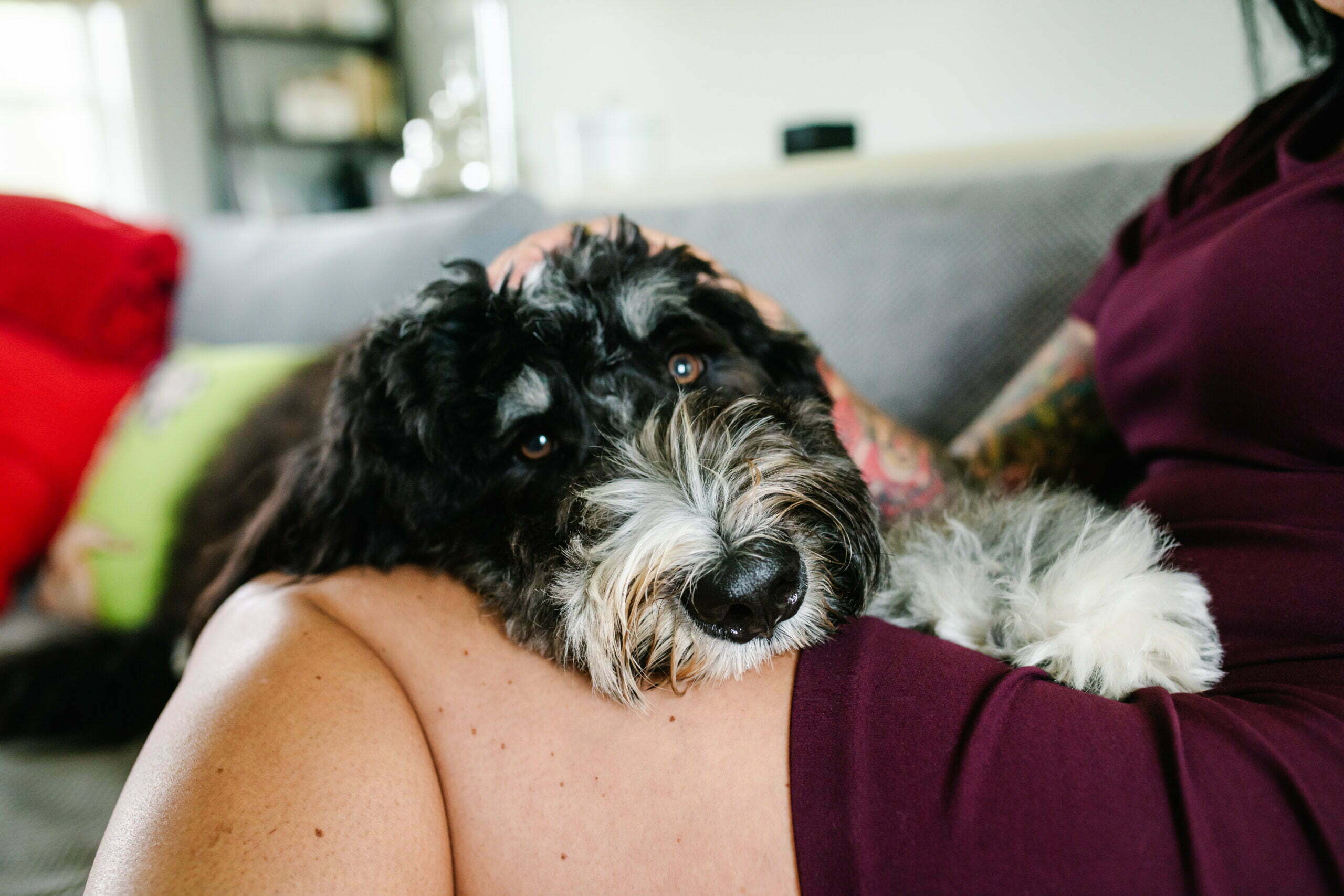“Therapy dogs! What about therapeutic cats, lizards, etc? Here’s an important author’s note- I’m partial towards dogs, so I’m writing about dogs. 🙂
I was so nervous about getting my dog, Biscuit. I work a lot and have a nasty habit of worrying about the future, so I wasn’t sure how I’d find the time to take care of an animal. As is often the case, I wasn’t at all able to connect with my value (being a great caretaker) when I was hijacked with this worry. Like I’ve shared with some of my close people, falling in love with Biscuit wasn’t instantaneous for me. Did I think he was adorable? Yes! However, still, I was fearful of having the responsibility of a dog. It took me several months to: (1) realize puppyhood doesn’t last forever and (2) notice all the wonderful things Biscuit was adding to my life. Throughout the last year, while Biscuit and I have been in training towards his therapy dog certification, he’s brought me the most therapeutic support. Here’s how owning a dog can help:
1. Dogs help you stay physically healthy. Dogs encourage exercise. I don’t need to go a lengthy rant about the direct benefits of exercise towards mental wellness. Although, I’m a pretty active person, on days when I’m feeling particularly lazy, I find the motivation to take care of Biscuit, if not myself, by walking. The health benefits of dog ownership exceed physical exercise, however. Stroking a dog can reduce blood pressure and has been proven to lower stress. Hospitalized patients were found to recover far more quickly with the support of a therapeutic animal. Heart disease and related complications are especially eased by therapy animals (Ruckert, 1987).
2. Dogs can help you develop skills like confidence and assertion. If you are looking to train your pet and read any animal expert guidebook, you’ll learn that you need to model yourself as the leader of the pack, or the alpha dog. The best way to do this is to maintain a calm confidence and redirecting your dog towards routine. While dogs can feel your energy, faking an assured demeanor by, for example, standing upright while holding their leash, can instigate more of these feelings in a genuine way.
3. Developing vulnerability. Dogs are the best intimacy trainers! One of the loveliest sensations is when a dog shows you his belly, an act of pure trust. Pets help us realize we are never really alone and force us to practice love through physical and emotional contact. Dogs often sense sadness or loneliness and snuggle to connect. Dogs give clear signals they want attention, they don’t play emotional games. Most of all, dogs love without conditions, which I don’t believe humans to be truly capable of. Still, we can model this lovingkindness energy in our relationships. Ruckert (1987) states: “pet’s don’t scold, don’t nag, and don’t expect a clean room. They just give love and respect.”
4. Dogs help build relationship skills and foster community connection. Both people and dogs have a need for social connection, so the support is mutual. Research shows that children who have dogs at home have less trouble building relationships with other childrens. Dogs need clear communication (think: “sit,” “stay”) which subconsciously can translate into a skill with humans. Dog owners are far more likely to be approached by frinedly strangers, and relationships can begin this way.
5. Dogs help with depression. Dogs can offer depressed folks a sense of purpose. Clinical evidence of depression can include: feelings of worthlessness, loss of interest in activities or hobbies, and difficulty concentrating. Dogs provide routine and a sense of purpose. When I worked with high risk populations early in my career, I had a client who I vividly remember who struggled to take care of her basic needs. When her dog needed something though, she felt purposeful and was often able to take care of one of her basic needs (i.e: eating a small dinner) when providing the same for her dog.
Ruckert, J. (1987). The four-footed therapist: How your pet can help you solve your problems. Ten Speed Press

